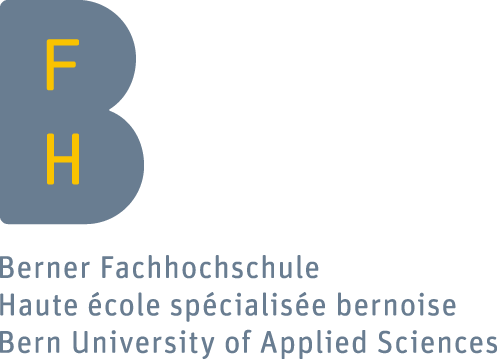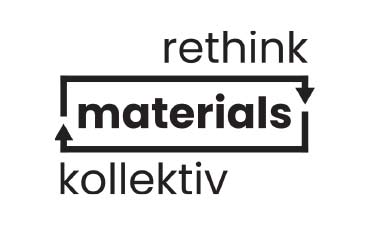
Ausbildung und Weiterbildung
Weiterbildung

MAS Denkmalpflege und Umnutzung
Alle fünf Wochen beginnt ein neues Modul. Dauer Mind. 2 Jahre.
Im Bauwesen verlagern sich die Aufgaben immer mehr vom Neubau auf das Erhalten und Umnutzen. Gefragt sind daher Fachleute, welche die Probleme von Denkmalpflege und Umnutzung kennen und anspruchsvolle Umnutzungen begleiten können. Hierfür braucht es integrales Denken und Handeln sowie einen verantwortungsbewussten, behutsamen und schonenden Umgang mit der gebauten Umwelt. Die grosse Auswahl an Modulen ermöglicht es, das Studium individuell und auf Ihre Bedürfnisse abgestimmt zusammenzustellen.

CAS Regenerative Materials – Essentials (English)
Wintersemester, jährlich. Kurs-Koordinator: Dr Arnaud Evrard, Dr. Guillaume Habert
Dieses Programm besteht aus fünf Modulen, die jeweils eine Woche dauern und über ein Semester verteilt sind. Die Module decken die wesentlichen Kenntnisse über die Verwendung von Erd-, biobasierten und wiederverwendeten Baumaterialien ab, von der Rohstoffgewinnung über die Baustelle und den Betrieb des Gebäudes bis hin zum Ende der Nutzung der Baumaterialien. ‚Module 4 : Re-valuing the building stock‘ bezieht sich speziell auf die Wiederverwendung im Bauwesen.

CAS Preservation
Herbstsemester, alle 2 Jahre. Programmleitung: Prof. Dr. Silke Langenberg, Prof. Dr. Stefan M. Holzer
Denkmalpflegerisches Denken und Handeln verlangt weitreichende Kenntnisse technisch-wissenschaftlicher Art. Ziel ist es, den Studierenden dieses Wissen zu vermitteln und die eigene Handlungskompetenz zu fördern. Die Absolvent:innen verfügen über eine fundierte Urteilsfähigkeit und können dem Wert des Bauwerks entsprechende und angemessene Lösungen entwickeln.

MAS in Denkmalpflege und Konstruktionsgeschichte
Herbstsemester mit gerader Jahreszahl. Programmleitung: Prof. Dr. Silke Langenberg, Prof. Dr. Stefan M. Holzer
Jeder Eingriff in die historische Bausubstanz setzt ein umfassendes Verständnis des Objektes und die Kenntnis denkmaltheoretischer Grundlagen und Positionen voraus. Ziel der Weiterbildung ist die Teilnehmenden zur Erkennung vorhandener Qualitäten zu sensibilisieren und sie zu befähigen, verantwortungsvoll mit dem Bestand umzugehen. Schwerpunkte liegen auf der Erfassung, der Bewertung und dem adäquaten Umgang mit bestehenden Denkmälern aber auch mit nicht geschützten hochwertigen Objekten.
Universitäts- und Hochschulkurse

Nachhaltiges Bauen im Bestand (Modul MAS Denkmalpflege und Umnutzung)
5 aufeinanderfolgende Freitage, Dozent: Peter Schürch Architekt SIA SWB
Das Modul ermöglicht die Beurteilung von Gebäuden in Bezug auf Nachhaltigkeit und Zukunftsfähigkeit,
gibt einen fundierten Input konstruktiver und technischer Lösungen zur Sanierung des historischen Bestands,
beleuchtet die aktuellen Energiediskussionen, und ergänzt Wissenstand zur Norm SIA 112/2 «Nachhaltiges Bauen – Hochbau».

Building design in the circular economy (English) (MSc-Programm)
Herbstsemester, Dozent: Dr. Corentin Fivet
Der Kurs führt in das Konzept der Kreislaufwirtschaft und seine Anwendung auf die Gestaltung von Gebäuden ein, wobei der Schwerpunkt auf der Demontage, der Wiederverwendung und der Lebenszyklusbewertung (LCA) liegt. Der Kurs entwickelt eine kritische Denkweise und vermittelt sofort einsetzbare Techniken.

Recyling of materials (English) (MSc-Programm)
Frühjahrssemester, Dozent: Yves Leterrier
Die Studenten verstehen die Probleme und Schlüsselfaktoren eines Abfallrecyclingprozesses. Sie kennen die Sortier- und Recyclingtechnologien für verschiedene Materialien und können die Umweltauswirkungen des Recyclings mit denen der Nutzung von Rohstoffen vergleichen.

Digitalization for Circular Construction (English)
Frühjahrssemester, Dozent: Dr. Catherine De Wolf
Die Studenten lernen digitale Innovationen für zirkuläres Bauen (z.B. Wiederverwendung von Materialien) durch praktisches Lernen kennen: Sie werden auf Abbruchbaustellen begleitet, um Baumaterialien wiederzugewinnen und zurückzugewinnen, sie lernen, wie man computergestützte Werkzeuge einsetzt, um Strukturen mit einem verfügbaren Bestand an Materialien zu entwerfen, und sie werden digitale Fabrikationstechniken einsetzen, um eine Kuppel auf dem Campus zu bauen.

Repair: Keep in Place (English)
Frühjahrssemester, Dozent: Dr. Silke Langenberg
Komplexe Konstruktionen, die schwer zu warten sind, und industrielle Fertigungsprozesse verkürzen die Lebensdauer von Objekten nicht nur im Produktdesign, sondern auch in der Architektur. Die Reparierbarkeit wird immer unwichtiger – Ersatz scheint die Norm zu sein. Wir müssen die Art und Weise, wie wir bauen, überdenken, und das beginnt bereits in der Planungsphase. In diesem Kurs kombinieren wir traditionelle Themen der Denkmalpflege mit Konzepten der Reparatur und FAB-Initiativen, um das Bewusstsein für nachhaltiges Denken und Handeln zu schärfen. Die Teilnehmer lernen sowohl traditionelle als auch digitale Methoden sowie die grundlegenden Bau- und Materialkriterien für die Reparatur kennen. Das Ziel ist nicht nur die praktische Reparatur eines Gebäudeteils, sondern vor allem das Kennenlernen der Konzepte der Denkmalpflege.

Abfallanthropologie und Kreislaufwirtschaft (Deutsch)
Herbstsemester, Dozent: Dr. Madlen Kobi
Abfall als kultureller Ausdruck vom Wert materieller Dinge verrät uns einiges über die sozialen Beziehungen und den infrastrukturellen Umgang mit Objekten. Als Folge industrialisierter und urbanisierter Gesellschaften stellen sich zudem ökologische Fragen zur Lagerung von abgebrannten Brennstäben aus Atomkraftwerken, zum Umgang mit Formationswasser bei der Erdölförderung oder zur Wiederverwendung von Bauschutt. Wir nähern uns in dieser Veranstaltung dem praktischen Umgang mit „wertlosen“ Dingen und den damit verbundenen Warenströmen. Dabei untersuchen wir, inwiefern die Idee der Kreislaufwirtschaft eine Lösung des Abfallproblems darstellen kann. Neben der Aufarbeitung von Grundlagenliteratur zu Abfall und Infrastruktur in unterschiedlichen geographischen und kulturellen Kontexten werden die Studierenden in kleinen Feldforschungen Podcasts zu unterschiedlichen Abfallthemen erstellen.
Kurze Kurse und Workshops


Massive Open Online Courses

Circular Economy for a Sustainable Built Environment (Englisch)
MOOC TU Delft, 6 Wochen, Kurs zum Selbststudium.
In diesem Kurs lernen Sie die Kreislaufwirtschaft als einen systemischen, multidisziplinären Ansatz kennen, der sich mit den verschiedenen Maßstäben befasst, vom Material zum Produkt, zum Gebäude, zur Stadt und zur Region. Einige Aspekte der Kreislaufwirtschaft, die in diesem Kurs behandelt werden, sind die Maximierung der Wiederverwendung und des Recyclings durch das Schließen von Materialkreisläufen. Sie werden auch erfahren, wie die Kreislaufwirtschaft dazu beitragen kann, Geschäftsanreize in den Lieferketten neu auszurichten, und wie Verbraucher durch neue Geschäftsmodelle, die Kreislaufdesign, Wiederverwendung, Reparatur, Wiederaufbereitung und Recycling von Gebäudekomponenten ermöglichen, eingebunden werden und zum Übergang beitragen können.


Worldviews – From Sustainability to Regeneration (Englisch)
MOOC ETHZ, 3 Wochen, Kurs zum Selbststudium.
Um die ökologischen und sozialen Krisen zu bewältigen, brauchen wir einen kulturellen und mentalen Wandel. Dieser Kurs ist der erste Teil einer zusammenhängenden Serie von vier Online-Kurse, die Wissenschaft, Design und transformative Praxis als einen fließenden, interventionsbasierten und synergetischen Prozess zur Bewältigung komplexer Herausforderungen zusammenbringen. Dies wird durch die Erweiterung von Weltanschauungen, die Neuausrichtung von Komplexität, Design als Natur, die Aktivierung unseres Geistes durch körperliche Bewegung und die Verbindung mit neuen Gemeinschaften erforscht.


